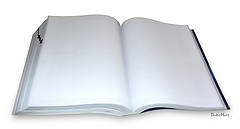Adam Croft's Blog, page 41
August 15, 2012
Do crime writers research their novels?
The question of research is always an interesting one, with some writers doing much more than others. But what about crime writers? With so many plot, police procedural and often legal issues to consider, do they research what they’re planning before they actually sit down and write it?
If this is a question you’ve ever asked yourself – or even if you haven’t – then this video is well worth a watch. It from the Waterstones channel on YouTube, and it features several well-known crime writers talking about how they approach researching their work.
It’s definitely an interesting watch, not least because it seems that there is a broad mix of opinions with regards to how much research you should do before getting on with the business of writing – and even the stage in the writing process you should actually do that research (if you choose to do any at all).
I think it just goes to show that once again there is no set right or wrong answer. If your approach to research works for you, great. Don’t worry about what anyone else is doing. If you’ve got a crime novel (or indeed any novel) in mind, don’t worry about how you think you should be researching it. Do it however you want to. As long as you get a great book at the end of it, whatever research you’ve done (or not done) will have served its purpose.
For all you other crime writers out there – what’s your approach to researching crime fiction?
August 14, 2012
5 reasons to try your hand at writing competitions

From major national prizes to tiny local contests, there are hundreds of writing competitions out there. It’s clearly never going to be practical to enter every single competition you come across, but entering carefully selected writing competitions could help you develop your skills as a writer. Here are five reasons to try your hand at writing competitions.
Give yourself a focus – and a deadline
First of all, it can be really useful to have a focus for your writing. As writers, we all know how easy it can be to procrastinate or fail to make progress unless we have a deadline in mind. Luckily, a focus and a deadline are two things that you can get from entering a writing competition, giving you a useful chance to work on your discipline and finish some projects.
Find motivation
Competitions can also help your motivation, partly by giving you a goal to aim for and partly by offering up some inspiration. Many competitions offer a theme or a prompt for you to work from, which can be great if you’re feeling a bit blocked or unsure of what to write. Likewise, many other competitions allow you to write whatever you want, which could be a great outlet for all those short stories or poems that you’re unsure what to do with.
Try new writing styles
Many of us tend to stick with one writing style, but entering competitions often gives us an opportunity to try out new styles and techniques. The theme of the competition might demand that we write in a certain way, or an interesting sounding poetry competition might force us out of our prose comfort zone. Whatever it is, it helps us to grow as writers and you never know when you might hit upon a new, fantastic idea you would never have considered otherwise.
Potential for confidence boosts
This one doesn’t really need much explaining – if you enter writing competitions, there’s a chance you might win. Of course, most of us won’t win most of the competitions we enter, but when we consider that there’s generally quite a lot of rejection in a writer’s career, it’s all good practice. Plus it only takes one win to give you a major confidence boost, so keep trying. Persistence is a useful skill for writers.
Add to your writing CV
Competition wins can be a great addition to your writing resume. For instance, if you’re pitching to agents or publications in the hope of getting your work printed, evidence of previous success – particularly if you’ve managed to win a prestigious competition – can be helpful. Depending on the competition, winning could also mean getting your work printed, which will be another helpful string to your bow.
Have you ever entered writing competitions, and are there any in particular that you’d recommend?
August 13, 2012
Ebooks more popular than print on Amazon

It seems as though we can hardly go a week without some sort of reminder that the rise of ebooks looks to be unstoppable. Whether it’s news of sales figures of the latest bestseller or a story about how more and more authors are turning to ebook independent publishing, there is always something that lets us know this is a big issue.
The latest such story is news from Amazon that tells us ebooks are now significantly more popular than print. According to Amazon, it is now selling 114 Kindle ebooks for every 100 print books it sells.
The other bit of interesting news from this story is the fact that Amazon says people who own Kindles buy on average four times more books than they did before they owned their ereader.
This is arguably good news for the publishing industry as a whole, as it suggests that rather than the decline that has been discussed elsewhere, there are still strong growth areas – people are still interested in books and keen to buy them, even though the means through which they do this is altering and there are undeniably big changes going on.
It’s also good news for independent publishers; most of us who publish our own work do so primarily through ebooks and platforms such as Amazon’s KDP. The fact that ebooks are now so popular perhaps means we can worry less about the need to sell print copies of our work as well, although print is also still a major market that deserves attention. Plus, when we consider that Amazon has more competition for print sales than it perhaps does for ebooks, it suggests that more research needs to be done to get a really clear picture of the print/ebook divide.
Still, it’s always nice to see encouraging signs for a form of publishing that many of us self-publishers make use of, so it will be interesting to see the next set of data to see whether the growth of ebooks continues. You can read more about the story here.
August 12, 2012
Why writers should never neglect their inner reader

It seems safe to say that most writers enjoy reading. There’s just something about sitting down with a book by an author you love and letting yourself get caught up in their story. It’s pretty hard to beat.
But at the same time, when you’re caught up in your own writing, it can be surprisingly easy to let reading fall by the wayside. Sometimes this is helpful; it can be easier to focus on your own work when you’re not distracted by someone else’s.
However, no matter how a writer likes to actually go about the process of writing and however reading fits into that, their inner reader is still important.
Increase your frame of reference
One reason the inner reader matters to writers is that it helps to expand our frame of reference. After all, the more we read, the more we will have to draw on and inspire us when we come to sitting down to write our own work. It helps us learn about different styles and expand our vocabulary, as well as introducing us to things we may never otherwise have known about.
Learn to be critical
Your inner reader can also help you to become more critical – in a good way. For instance, the more you read of other people’s work, the more you will understand about what you like and what you think constitutes as a ‘good’ book, something that can be enormously helpful for your own work.
It can also help you while you’re in the process of writing. For example, when you’re going through your latest draft and working out what to edit, put yourself in the shoes of a reader. If you were a reader coming to your work for the first time, what would you think? Does everything make sense, is it paced properly, are there any changes you need to make?
Perhaps above all, remembering our inner reader helps us to remember why we write in the first place. Reading a good book is fun. It can be emotional and interesting and entirely unexpected. And if even a tiny bit of that rubs off on us when we’re in the middle of a difficult draft, it can surely only be a good thing.
What do you think?
August 11, 2012
Cops and robbers – good and evil in crime fiction
To say that crime fiction is just about the struggle between good and evil is too simple an explanation, but this struggle is undoubtedly an important component of novels in this genre. Along with all those other wonderful factors – suspense, plot and so on – the good/evil battle in crime fiction is one of the things that keep us coming back for more.
In a way, the battle between good and evil is one of the centrepieces of the genre. It’s a source of much of the suspense and drama, and can provide twists and turns and inspiration for the plot. And it never fails to be interesting. I think one of the reasons for this is that ‘good’ and ‘evil’ are not as simple as we might at first think.
For instance, when we read crime novels, we generally want to see the antagonist get their comeuppance – we want justice to be done. Yet we know that outcomes aren’t always clear cut. Things aren’t always fair and in crime fiction as in real life, there is often a grey area between good and evil.
The murderer might be an oddly sympathetic character, for example. When we look only at their crimes, they might seem as though they are entirely evil. However if that was the case, they probably wouldn’t be very believable as a character. Once we come to look at their motive, even though we still abhor their actions, we can start to see that there is more to them – that they’re not just evil, that they have their shades of good as well.
We might have a detective who is intent on getting justice for the victims they encounter – but they might have their own grey areas. They might disregard the rules, have a turbulent personal life, or apply contentious methods to get what they want.
No one is entirely good or evil, and that helps to make crime fiction more surprising, unpredictable and varied. If all crime fiction writers used the simple formula of ‘good takes on evil and wins outright’, things would probably get boring pretty fast – and readers would always be able to guess the outcome, destroying much of the suspense that is such a trademark of the genre.
We need the surprise to be there. As writers, we need the readers to be uncertain about the outcome of the novel, and sometimes that means making it seem as though ‘evil’ is going to triumph. It also means that resolutions are not always clear cut – the antagonist might be caught at the end of a crime novel, but the forces of good might not be as clean as they once were.
It’s an age old battle. Good versus evil is a staple of not just crime fiction, but the vast majority of genres. It’s a struggle we can all identify with, and it helps to give us something to root for. In crime fiction as in life, it makes us cross our fingers and hope for the best… all the while knowing that the ‘best’ might not be what we ultimately get.
August 10, 2012
The importance of direction in independent publishing

What do you want your book to be? It’s an important question to ask yourself when you’re getting involved in independent publishing, not least because you’ll probably be relying on no one but yourself to make a success of your publishing venture.
It’s also important because independent publishing encompasses more aspects than just ‘being a writer’. Naturally, being a writer is the most important aspect – without writing, you wouldn’t have a book to publish in the first place, or any more books in the future to publish after your first.
However, vision and direction are important too. From the cover design of your book to how you plan to market it, some sort of vision is crucial. This can be a really fun aspect of independent publishing. You essentially get to be your own creative director, which is great not only for your book, but also for developing skills that could help you in other areas of your life too.
For instance, it helps to develop your project management skills, and introduces you to new areas. After all, before publishing, I’d wager that very few of us were experienced at everything to do with writing, designing, marketing, publishing, formatting, editing, proofreading, engagement and so on. Self-publishing incorporates a wide range of skills, all of which can be learned along the way if necessary, but without that initial vision or ideas for direction, the process will be much more of a challenge.
We’ve looked at the issue of control on this blog before: independent publishing is a great way for authors to get as much control as possible over their work. So get thinking about that vision and the direction you want your work to go in – it might start as an abstract or half-formed idea, but with time, it should certainly help you along the way.
August 9, 2012
10 questions to ask yourself before taking the self-publishing plunge

Independent publishing is an increasingly popular route for authors looking to get their work out there while still retaining full control over what they do. However, taking the self-publishing plunge is not something to be taken lightly. Before you do, there are some important questions you should ask yourself to make sure you (and your book) are ready to get started. In no particular order, here are 10 of the most important…
Are you as happy as you can be with your book?
Has it been edited to a high standard? Has it been proofread to correct any spelling and grammar errors?
Have you researched self-publishing so you have a good idea of what you’ll need to do? Alternatively, have you found someone who will be able to help you manage the process?
Have you decided where you want to publish your book?
Have you started to build yourself a platform, such as through social media, so you’ll have something to work from when it comes to promoting your book?
Do you have a strategy for marketing?
Do you have goals that you want to achieve? Your goals could be anything from ‘self-publish and see what happens’ to ‘get an Amazon bestseller’.
Have you thought about pricing your book?
Have you thought about what you’ll do if things don’t go quite to plan?
What are you going to write next?
When it comes to independent publishing, everyone is different and so it’s important that you find the right process and methods that work for you. However, there are definitely common issues that we all need to be aware of and deal with so we can have the best possible chance of self-publishing success.
Over to you. What do you think are the most important questions to ask yourself before taking the self-publishing plunge?
August 8, 2012
Crime fiction – creating believable villains
The list of things to love about crime fiction is long. From the suspense to the exciting plots, there is a lot to enjoy about this genre. The trend for excellent villains is something else that makes crime fiction such an exciting genre to write and read.
The villain(s) plays a hugely important part in the plot of a crime novel. They are generally responsible for the crime that must be solved and provide tension with the protagonist. Get the villain right and your crime novel could reach new heights of brilliance. Get them wrong, however, and your novel could end up being too melodramatic or the reader might not buy into the story.
With this in mind, here are a few things to consider when creating believable villains in crime fiction.
Know their backstory
Even though you might not include the antagonist’s entire backstory in your novel, it helps to have an idea of what it is. This helps to ground them as a character and provides you with something to work from when constructing their crimes and deciding how they are going to act throughout the novel.
Know their motive
Remember that even though the villain is in the wrong, they think that they are right. Why have they done what they’ve done? Looking at their justification for their actions is important – this doesn’t mean agreeing with what they have done, but rather helping the reader to understand their motives. Feeling empathy or getting to know the villain in greater depth can be a great way of adding extra drama and emotion to your novel.
Remember they’re complex
Finally, remember that antagonists are just as complex as everyone else. It’s unlikely that they’ll be completely evil through and through. In a way this comes back to motive – why do they act like they do? What has driven them to the acts that make up your novel? Was there an event in the life of the antagonist that drove them to their crimes? Were they completely ‘normal’ before, or have they always had a darker streak?
Antagonists in crime fiction are varied, interesting and complicated. We’ll never run out of new villains to use and learn and get to know – but whoever our villain turns out to be, we need to believe in them, both as an antagonist and as a character.
How do you go about creating believable antagonists for your novels?
August 7, 2012
Can you improve your writing through brevity?
Almost by definition, writers are wordy. It’s what we do; words are our trade. We all want to use them as best we can and, in order to improve, that often means trying different approaches and new techniques to help boost our abilities.
So what about brevity? Words are what we’re about, but those words also need to be the right ones. They need to get across the right meaning, and arguably keeping things brief is one way to hone our writing. After all, whether we write prose or poetry, we don’t want to waste words. We don’t want our readers to get to the end and think ‘well, half of that wasn’t even necessary.’ We want every word to count.
In a way, this comes back to debates about how long novels ought to be – and the answer that they should be as long as they need to be, no matter how long that is. But maybe we can also look at this another way, that they should also be as short as they can be. If you can say what you want to say in 50,000 words, why carry on to 80,000? Often, it’s possible for something short and sweet to pack just as much – if not more – of a punch than something significantly longer.
This is another of those issues with no right or wrong answer. Short things can be good. Long things can be good. I think the heart of the matter though, is all about finding the purpose of what it is you’re doing. As writers, we need to be satisfied with every aspect of what we do, and that includes finding the ‘Goldilocks’ length for our work.
However, we can identify some other reasons why brevity can help us to improve our writing, even if we end up going on to write a novel longer than War and Peace. One of the reasons is that keeping things short makes us think carefully about what we put. When we can’t waste words, we have to make every single word count. Setting ourselves a challenge of, for example, describing the scene outside the window in 100 words or less makes us hone what we’re doing and think of the most precise ways of saying things.
It also helps us to develop discipline, which is always important in writing whether we’re talking about actually sitting down to write on a regular basis or the mechanics of how we write. Plus, so many different types of writing are dependent on restrictions. We might write articles for publications that have a limit of so many words, or enter short story competitions that require the story to be a certain length. The discipline to write to a required length is important and, for many of us whose instinct is to write longer pieces, an important skill to learn.
Brevity isn’t always the right way to go in writing. Like everything else, it has a time and a place, but it is certainly a useful skill for us to have and it could well help our work to have even more of an impact. But what do you think? Do you think it’s important to learn this discipline or do you take a different approach to your writing?
August 6, 2012
The importance of description in writing
Something that is important to all writing is description. It helps to bring stories to life. It can also be quite controversial – lots of people have very strong opinions on how best to use description in fiction
The ‘show, don’t tell’ rule is probably one of the most famous ‘rules’ of writing. This is explained quite well by this quote from Anton Chekhov: “Don’t tell me the moon is shining; show me the glint of light on broken glass.”
It’s clear from this that description in writing is something of an art; it’s about giving the reader enough details to know what is going on, but also creating a picture or an atmosphere for them to give them a sense of the story.
However, we can probably all agree that too much description is just as troublesome as not having enough of it. Without any description at all, it can be hard for us as readers to care about a story and its characters, but with too much description, the same thing can happen. Endless paragraphs of description of the scenery, for instance, can get in the way of the story, making it hard work to read – no matter how beautiful the description is.
Arguably, this is particularly true of novels in genres such as crime, where the plot is vital. Things need to keep moving on, and as helpful as description is in allowing writers to illustrate a point and anchor what they are trying to do, it can’t be at the expense of the story.
So there is a balance that we need to find in terms of description. The ‘show, don’t tell’ rule is a useful one, but we can’t get away from the fact that it sometimes simply makes more sense to tell rather than show. If we tried to ‘show’ every detail, our novels would fast become rather odd. If you want to write “the man walked across the room,” write it. There are places where carefully considered metaphors, similes, adjectives and so on work really well, and other places where they aren’t needed.
Often, description can have the most impact when it is used sparingly. After all, it never hurts to let the reader do some work; one of the best things as a reader is being able to build up a picture of something in your head – and while description is certainly an aid of that, too much of it could prevent you from coming up with your own personal interpretation.
Description is undoubtedly vital in writing, but perhaps we can say that it should, as a general rule, be there to help the story rather than for its own sake. As writers, we should always be questioning ourselves. Is our meaning clear? Do the words we have chosen evoke the right imagery? Do we really need that adjective, that flowing description, or is this not the time for it?
It’s a hard thing to get right, but it’s an important one. It’s also a fun one, and a brilliant opportunity for writers to develop their style and for readers to lose themselves in words. But what are your views on description in writing? Do you like the ‘show, don’t tell’ rule or do you use other methods in your work?



